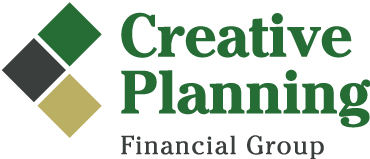In the words of Warren Buffet, “Someone’s sitting in the shade today because you planted a tree a long time ago.” Building wealth through careful planning is like cultivating a tree—it takes patience to see the fruits of our labour. Yet, the real challenge lies not in growing wealth, but in preserving it across generations.
The “great wealth transfer” is upon us. By 2026, it is estimated that $1 trillion is expected to move from the accounts of Canadian baby boomers to the pockets of their Gen X and millennial children. The stark reality is that 70 per cent of generational wealth transfers fail, and research shows, wealth is often one of the biggest “sources of friction” amongst family members.
Whether it’s the will that favours one child over the other and ignites infighting and estrangement, or the divorce that sends the whole succession plan spinning, family dynamics can be turbulent. The arrival of grandchildren may complicate things further, leading to disputes over which cottage weekends belong to what family.
When a family member passes away, it often results in feuds, leading family members to make irrational decisions. When it comes to deciding what to do with family properties, sentimental attachment tends to heighten emotions even more.
How can you ensure your cottage is passed down successfully, or that your other assets aren’t the cause of fractious infighting between your loved ones? No matter how many times you may hear it, communication is key.
Having a sit-down conversation about your family cottage can avoid conflict before it even happens. Writing a will and laying out your wishes for every individual to see, provides an opportunity to initiate important conversations amongst your beneficiaries. Sunlight is the best disinfectant when it comes to interpersonal family conflict, so open the windows and air it out.
Discussions about ownership are important as well. Even if you can afford it, how much time do you really want to spend at the cottage? How strong is your attachment to the property? How are you going to delegate maintenance tasks and manage upkeep?
When you take the time to have this important conversation, it ensures you do not “put the cart before the horse.” Once everyone’s wishes and intentions are clear, you can begin to make financial decisions that align with your long-term goals.
Passing before passing, giving while living
If you’re considering passing down the cottage while you’re still living, here are some important considerations to keep in mind:
- By transferring the property to your children, you will trigger a deemed disposition and “realize” the capital gain and the associated income tax. That said, transferring the cottage will allow you to lock in the current value of your property and defer future capital gains to the next generation.
- It is important to note that this strategy would see the homeowner relinquish ownership and control (although this concern can be mitigated via the use of a trust).
- Additionally, with the June 2024 increase to the capital gains inclusion rate, this type of planning has become more costly.
Passing After Passing; Funding the transfer
Whether you decide to give while you are living, or after you pass, it is important to note that the tax liability will be based on the current value of your property. While parents may have purchased the cottage for $300,000, your family may now be sitting on a million-dollar property. With this accrued gain, when ownership transfer does occur, capital gains tax will apply to the $700,000 increase in value.
This capital gains tax liability will require funding. Here are some options:
- Sinking Fund: Setting aside savings over time to fund the future tax bill.
- Mortgage: If there is not enough liquidity in the estate to pay the associated taxes, the beneficiaries could apply for a mortgage to fund the tax liability. This strategy can quickly become very complicated if you have more than one beneficiary.
- Life Insurance: In many cases, life insurance is the most cost-effective way to fund the tax liability at death. Due to the tax-free nature of the “death benefit”, the capital gains tax can be covered for pennies on the dollar. This is especially true for those who hold retained earnings in a corporation.
There is a reason that Benjamin Franklin called life insurance the “cheapest and safest mode of making a certain provision for one’s family.” Offering both emotional reassurance and financial security, life insurance helps you safeguard your assets and ensure a smooth transition for your beneficiaries after your passing.
Your succession plan should be clear and purposeful, not a puzzle to decipher. Family assets represent more than just financial value—they embody your legacy and hold cherished memories.
Imagine your grandchildren sitting on the dock you built, listening to stories about the tire swing from decades past. These are the moments that make planning and discussions like this invaluable.
Secure the future of your family’s assets by consulting with a CPFG advisor today. Take proactive steps now to preserve and grow your generational wealth.

